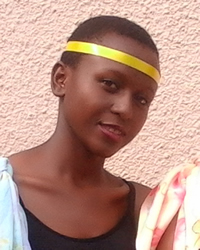The Banyankore are a Bantu-speaking people originally from southwestern Uganda, but small communities have migrated into northwestern Tanzania, particularly near the border regions of Kagera and Kigoma. In Tanzania, they are sometimes grouped under the broader category of Banyarwanda or Bahaya-related peoples. Their language, Runyankore, is closely related to other Bantu tongues and shares mutual intelligibility with languages like Rukiga and Runyoro.
Historically, the Banyankore were organized into a hierarchical society with strong clan structures and a monarchy known as the Ankole Kingdom. Cattle ownership played a central role in their economy and social status, and the pastoralist elite, known as the Bahima, often governed over the agriculturalist Bairu.
Today they live in three countries. The vast majority are in Uganda, but small numbers are in Rwanda and Tanzania.
In Rwanda, Banyankore communities are often engaged in both cattle herding and small-scale agriculture. They raise long-horned Ankole cattle, a breed prized for its beauty and resilience, along with goats and poultry. Crops such as bananas, beans, maize, and sweet potatoes are staples of their diet.
Families typically live in extended units, with elders holding authority over family decisions. Homes are modest and made from mud, timber, thatch, or iron sheets. Banyankore society is patriarchal, with clearly defined gender roles. Men usually handle herding and market trade, while women manage domestic work and farming.
Traditional dance, oral storytelling, and proverbs are integral components of Banyankore identity, particularly during marriage ceremonies and community gatherings.
Traditionally, the Banyankore believed in a supreme creator god called Ruhanga and honored ancestral spirits through rituals and offerings. Divination, spirit-medium consultations, and herbal healing played central roles in their religious life.
Today, most Banyankore in Tanzania identify as Christians, many of whom have been influenced by Anglican, Catholic, or Pentecostal mission work. However, cultural syncretism remains common. Some still mix biblical faith with traditional practices like ancestor veneration or ritual cleansing, which reveals a need for deeper biblical understanding and discipleship.
Islam is present in some areas due to regional influence, but it remains a minority faith among the Banyankore.
Physical Needs Rural Banyankore communities face limited access to healthcare, clean water, and educational opportunities. Girls often leave school early to get married or take on domestic responsibilities. Poor road infrastructure also affects trade and access to services.
Spiritual Needs While many Banyankore identify as Christians, only a small portion have encountered the full gospel in a transformative way. Bible teaching in Runyankore is limited, and mature local leadership is scarce. Many churches lack depth in discipleship, leaving believers vulnerable to syncretism. There is a need for faithful teaching of God s word, contextualized discipleship, and outreach to those still clinging to ancestral traditions.
Pray that God would raise up mature Banyankore believers in Rwanda to lead and disciple their own communities.
Pray for increased access to the Bible and Christian resources in the Runyankore language.
Ask the Lord to break the grip of syncretism and reveal the power of Christ alone for salvation.
Scripture Prayers for the Banyankore in Rwanda.
https://nativetribe.info/10-facts-you-need-to-know-about-the-banyankole-tribe/
https://www.govisitkenya.com/banyankole-people.html
https://hereinuganda.com/banyankole
https://www.101lasttribes.com/tribes/banyankole.html
| Profile Source: Joshua Project |











